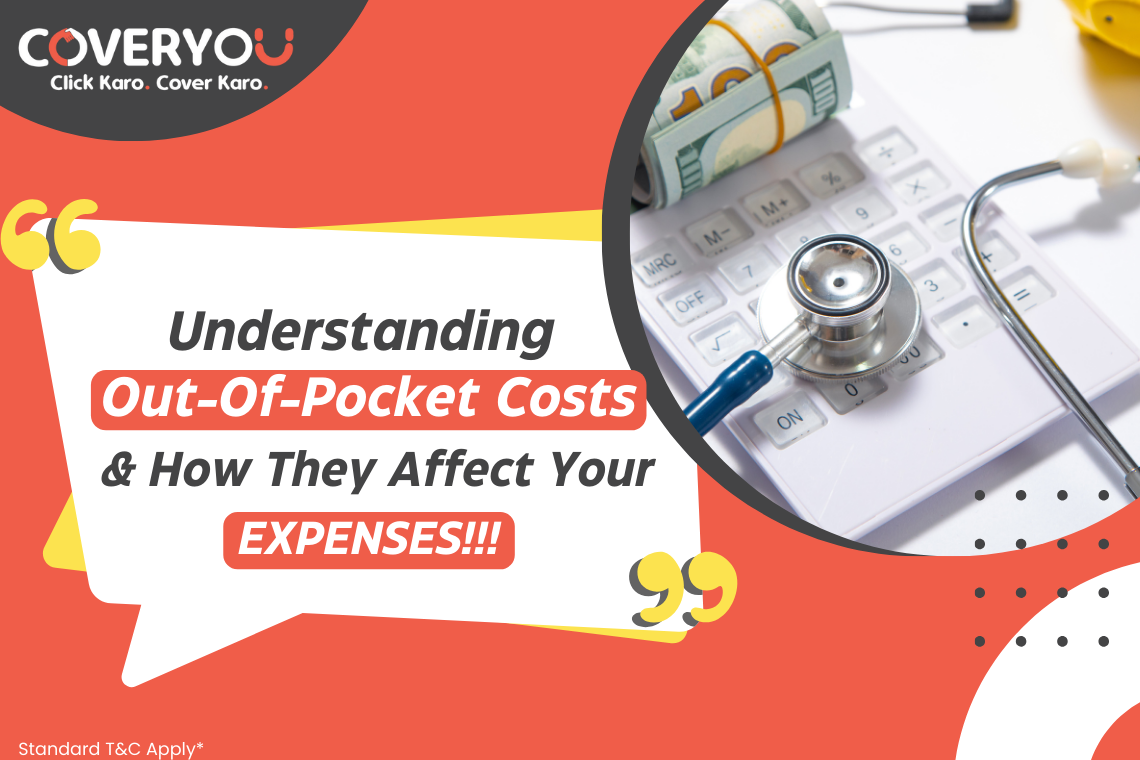Knowing the ropes of healthcare expenses is important, and out-of-pocket costs for doctors become an essential part of it. These are the costs that you directly pay for in contrast to those covered by insurance. Out-of-pocket costs sometimes make a great difference in your overall budget on healthcare; hence, it’s important to know how they work or how they may affect financial planning.
What Are Out-of-Pocket Costs?
Out-of-pocket costs encompass all medical-related expenditures not covered by health insurance. They typically include:
- Deductibles: The amount paid out-of-pocket before insurance coverage begins. For instance, if your deductible is ₹10,000, you pay the first ₹10,000 of your medical bills.
- Copayments: These are fixed fees for specific services, like doctor visits or prescriptions. For example, you might pay ₹500 for each specialist visit.
- Non-Covered Services:Some treatments or services may be excluded from coverage under your insurance plan like cosmetic procedures, dental care, self-inflicted injuries, routine checkups etc. In those cases, you alone bear the full cost for those services.
- Out-of-Network Charges: This happens when you receive medical care from a healthcare provider who is not in your health insurance plan’s network. These providers typically charge higher rates than in-network providers. For instance, you see a doctor who is not in your insurance plan’s network. You may pay a higher co-pay or deductible and your insurance may only cover a portion of the cost.
How Out-of-Pocket Costs Affect Your Expenses
It’s pretty obvious that the out-of-pocket costs might affect your overall expenses toward healthcare. Here’s how they can get at you:
- Financial Stress: Unexpected or high out-of-pocket costs can cause financial strain.
- Healthcare Choices: These costs may influence treatment decisions, potentially impacting health outcomes. For example, you might avoid some treatments with high out-of-pocket costs or even opt not to start such treatments. This may negatively impact your health and the treatment process.
- Emergency Cases: Out-of-pocket costs can be particularly challenging during emergencies. Having an emergency fund or supplemental insurance may help control these costs more appropriately.
Managing Out-of-Pocket Costs
Here are strategies to manage it:
- Review Your Insurance Plan: Understand your coverage, deductibles and copayments. It will help you to project, budget, and manage such costs.
- Use Preventive Care: Many illnesses are preventable through consistent health check-ups and care. Most insurance plans cover these preventive services without any additional cost.
- Check for Financial Assistance Programs: Some hospitals or pharmaceutical companies offer assistance for those with high out-of-pocket costs. Take time to research and apply for any eligible programs.
- Negotiate Your Medical Bills: Discuss payment plans or discounts with healthcare providers. Never fear for negotiating your medical bills, especially when you are paying out of pocket.
- Keep records: Keep accurate records of medical expenses for budgeting and tracking.
CoverYou: Simplifying Healthcare Costs with Comprehensive Solutions
CoverYou offers comprehensive health insurance solutions designed to mitigate the challenges of healthcare expenses. Our plans provide clear coverage limits, deductibles, copays, and coinsurance, empowering you to make informed decisions.
We prioritize exceptional customer support, guiding you through your policy details and out-of-pocket cost calculations. Our user-friendly platform simplifies expense tracking and budgeting. Additionally, we offer a range of tools to assist in managing healthcare costs, including claims processing support.
With CoverYou, you can trust in a reliable partner that provides clarity and support in navigating out-of-pocket costs.

















